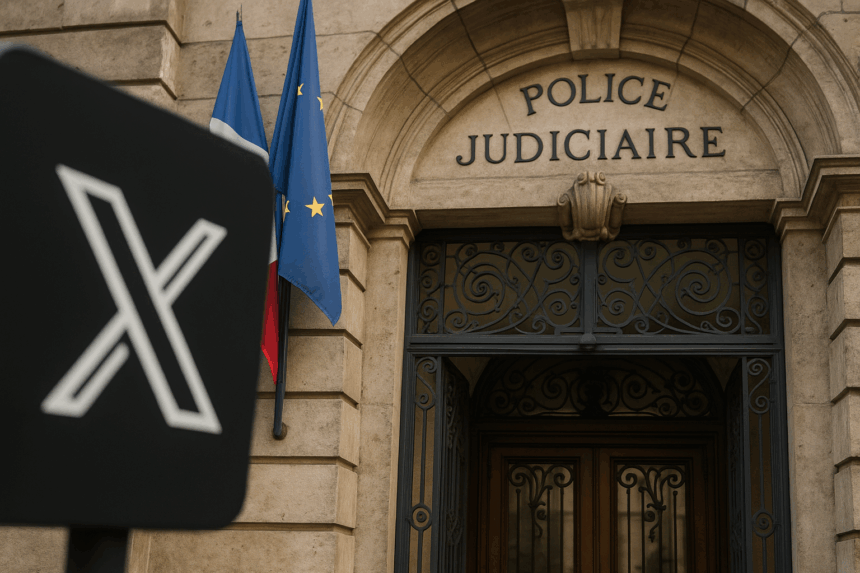France launches a criminal investigation into Elon Musk’s social media platform, X, over alleged data manipulation and political interference. The probe scrutinizes social media’s impact on democracy and brings to light legal challenges ahead for the platform across Europe.
What’s Happening & Why This Matters
The Paris Public Prosecutor’s Office opens a criminal inquiry against X, citing “alteration of the functioning of an automated data processing system by an organized group” and “fraudulent extraction of data.” These accusations carry a penalty of up to 10 years in prison and fines of up to €300,000 (approximately $350,000).
The investigation expands on a February preliminary probe following a cybersecurity report submitted to French authorities. The report suggests X may have misused data and automated systems to influence political outcomes.
X’s growing involvement in European politics raises concerns. The platform has supported Germany’s right-wing party, Alternative für Germany (AfD), known for its anti-immigration policies. This relationship led to Tesla boycotts in Germany and decreased sales, creating backlash against Elon Musk’s companies.
X’s legal challenges are not limited to Europe. The platform faces a prolonged court battle in Brazil. The Brazilians accuse X of fueling political unrest. Brazilian courts temporarily banned X and imposed fines exceeding $5 million. These issues emphasize the global nature of X’s legal troubles.
Neither Elon Musk nor X has commented on France’s investigation. French politicians endorse the inquiry. Eric Bothorel, a French centrist legislator, calls X a “threat to our democracies.” He expresses concern about the shrinking diversity of voices on the platform and the opacity of algorithm updates.
The investigation grants French authorities powers to conduct searches and question individuals linked to the case. The identities involved remain confidential to protect the integrity of the inquiry.
TF Summary: What’s Next
France’s investigation into X reveals increasing government action against social media platforms suspected of manipulating political discourse. The probe could institute regulatory changes. It could also prolong legal technology battles throughout Europe.
The case fits a pattern of monitoring tech companies’ influences on public opinion — especially in democratic processes. The outcome may redefine social media responsibilities around political content and data security.
— Text-to-Speech (TTS) provided by gspeech


